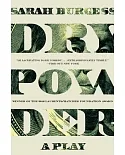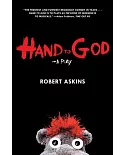Tony Pastor, a vaudeville performer and manager, was known as the Dean of Vaudeville. He is credited with cleaning up the bawdy variety shows of the mid 1800s, resulting in their appeal to
women and the middle classes. He opened his first vaudeville house in 1865 and continued to present shows at a series of New York houses until shortly before his death in 1908. He achieved his
greatest hits with parodies of Gilbert and Sullivan operettas, but he also presented parodies, or burlesques, of Shakespearean productions and those of contemporary authors, as well as
melodramatic works in the popular style of the day. The plays, or afterpieces, and the function they served both for the audience and for the theatre, are discussed within the context of the
culture and conditions under which the plays were written. Thirteen plays are included, each preceded by a production history. Issues addressed in each play are analyzed, such as prevailing
societal attitudes, including those toward class and gender. Discourse on the parodies includes an examination of the original play, detailing why particular sections were chosen to parody.





















